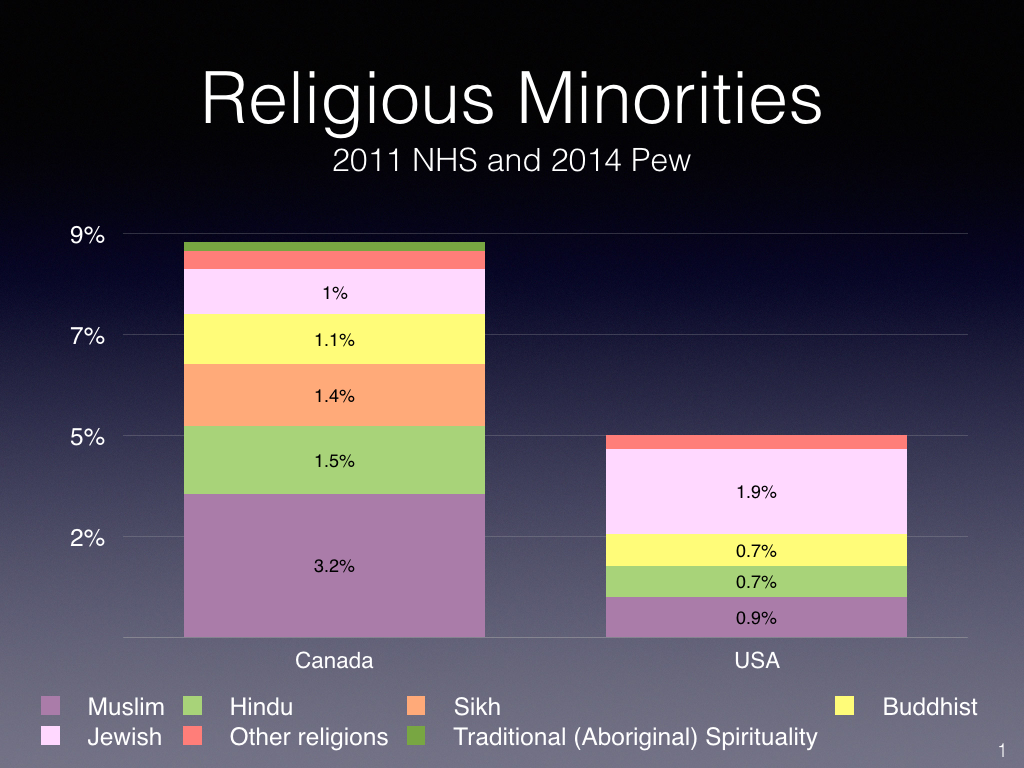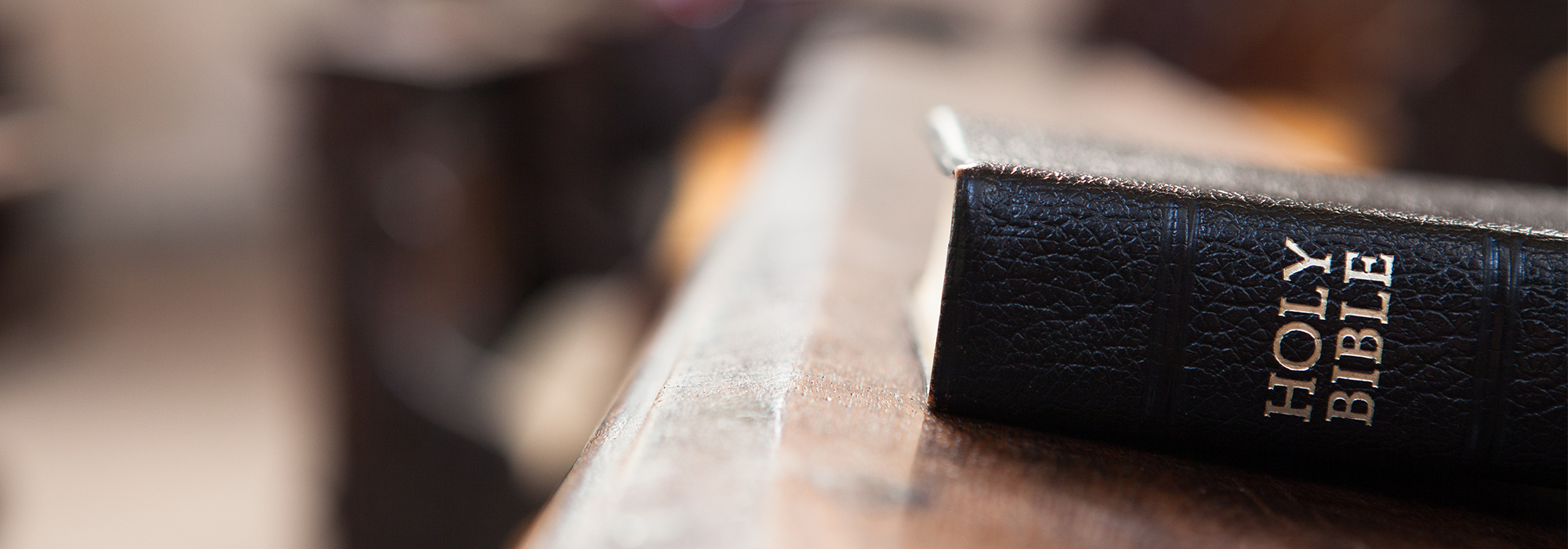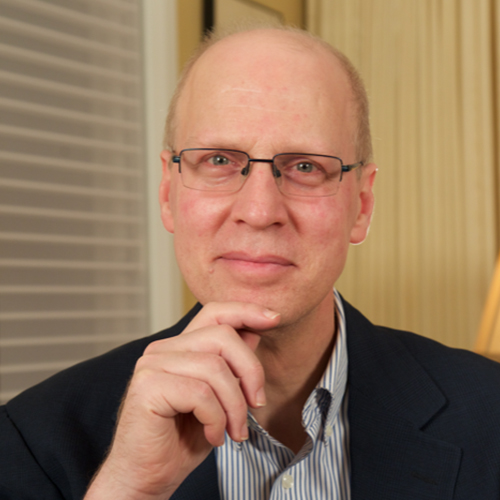 A good long piece analyzing the findings of the Pew Research 2014 Religious Landscape Study, mainly from a political perspective.
A good long piece analyzing the findings of the Pew Research 2014 Religious Landscape Study, mainly from a political perspective.
The above chart contrasts religious minorities in Canada with those in the USA. The more significant difference is with respect to Christians: some 60 percent of Canadian Christians are Catholic compared to 30 percent of Christians in the USA. Evangelicals form 35 percent of US Christians compared to about five percent in Canada (counting Baptist and Pentecostal as such). This helps explain, in part, the vast difference in political culture between the two countries, given the importance of the evangelical base to the US Republicans.
While the warning to the Democrats that the culturally liberal attitudes of their white upper class elites may create tension with their more traditional Black and Hispanic constituencies, it is unclear whether the ‘culture wars’ play that significant a role compared to more bread-and-butter issues for minorities (in contrast to the Republicans):
Long the dominant group in American religious life, White Christians have fallen below a majority of the U.S. population—and they are moving to the right politically as they recede.
The result is that, like race and age, religious affiliation marks a sharpening point of distinction between Republicans and Democrats, previously unpublished results from the Pew Research Center’s massive Religious Landscape survey show.
As the nation relentlessly diversifies, both in its radical composition and religious preferences, White Christians now represent just 46 percent of American adults, according to Pew data provided in response to a request from Next America. That’s down from a 55 percent majority as recently as 2007, and much higher figures through most of U.S. history.
Yet even as White Christians shrink in their overall numbers, they still account for nearly seven-in-10 Americans who identify with, or lean toward, the Republican Party, the Pew study found. White Christians, in fact, represent as large a share of the Republican coalition today as they did of American society overall in 1984, when Ronald Reagan won reelection. A clear majority of all White Christians across the United States now identify as Republican, Pew found.
In sharp contrast, the Pew data show, the Democratic coalition has evolved into a three-legged stool that divides almost evenly between White Christians, non-White Christians, and those from all races who identify either with a non-Christian faith or, increasingly, with no religious tradition at all. Most Americans who don’t identify with any religious faith—a rapidly growing group—now align with Democrats.
These diverging profiles create electoral challenges for each side. Republicans face the tension of balancing the morally conservative preferences of their religiously devout base with the deepening instinct toward cultural tolerance of a society that is growing more secular, particularly among the young.









